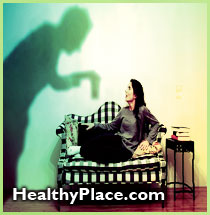Feldenkrais Method for Treating Psychological Conditions
Learn about the Feldenkrais Method and how the Feldenkrais Method can help treat depression, anxiety, eating disorders, and other mental health conditions.
Before engaging in any complementary medical technique, you should be aware that many of these techniques have not been evaluated in scientific studies. Often, only limited information is available about their safety and effectiveness. Each state and each discipline has its own rules about whether practitioners are required to be professionally licensed. If you plan to visit a practitioner, it is recommended that you choose one who is licensed by a recognized national organization and who abides by the organization's standards. It is always best to speak with your primary health care provider before starting any new therapeutic technique.
Background
The Feldenkrais Method was developed by Moshe Feldenkrais (1904 - 1984), a Russian-born Israeli physicist who was disabled from a knee injury. Dr. Feldenkrais called on his formal training in science and in the martial arts to develop an approach that aimed to help the body move in more natural and comfortable ways.
The technique involves stretching, reaching and changing posture in specific patterns. In some cases, it includes a form of massage. In general, the emphasis of the Feldenkrais Method is to provide supportive therapy or physical rehabilitation. The Feldenkrais Method has not historically been viewed as a curative approach to most diseases. Recently, the Feldenkrais Method has been studied as a means to improve muscle and joint pain, to improve quality of life in chronic conditions such as multiple sclerosis, and to reduce anxiety levels. Research is still early in these areas, without definitive answers.
The Feldenkrais Method can be offered only by practitioners who have trained in accredited programs. Practitioners are registered with Feldenkrais guilds worldwide. In the United States and Canada, practice of the Feldenkrais Method is not governmentally regulated.
Theory
The Feldenkrais Method is based on the concept that improving patterns of movement may enhance overall physical and psychological performance or recovery from disabling conditions. There are two basic components of the Feldenkrais Method: Awareness Through Movement and Functional Integration. These approaches may be used alone or in combination with each other.
Awareness Through Movement is an approach to body movement that is taught in group sessions by Feldenkrais practitioners. Practitioners verbally lead participants through a series of slow movement sequences that may involve everyday motions such as standing up, sitting down or reaching, but may also involve abstract movements. These sessions often last between 30 and 60 minutes and may be customized to the ability of individual participants. There are hundreds of Awareness Through Movement patterns, which vary in complexity and difficulty. The goals of Awareness Through Movement are to increase awareness of what types of movements work best for a participant, to find sequences of movement to replace uncomfortable or habitual patterns and to improve flexibility and coordination.
Functional Integration involves a hands-on private session with a Feldenkrais practitioner. Participants are fully clothed and may be in a lying, sitting or standing position. As with Awareness Through Movement, the emphasis is on helping participants develop patterns of movement that are efficient and comfortable. The practitioner may touch the participant and move muscles and joints gently within the normal range of motion. Movement sequences are customized to the individual, and through touch, the practitioner may demonstrate new movement patterns. An aim of these sessions is to help identify patterns of movements that are natural and comfortable. It is believed that by leading the body through more functional patterns of movement, the body may learn to move in beneficial ways, resulting in improvements in everyday activities or in symptoms related to medical conditions. Sessions generally last from 30 to 60 minutes.
Awareness Through Movement and Functional Integration are considered by Feldenkrais practitioners to be equivalent and complementary means of achieving improvements in movement patterns.
Evidence
Scientists have studied the Feldenkrais Method for the following health problems:
Physical rehabilitation
The Feldenkrais Method has been suggested as a possibly useful addition during rehabilitation or recovery after injury or surgery (in particular in patients with orthopedic injuries). Most studies have been low quality, and further research is necessary before a firm conclusion can be made.
Multiple sclerosis
Early evidence suggests that steadiness and comfort with daily movements, depression, anxiety, self-esteem and overall quality of life may improve in patients with multiple sclerosis who use Feldenkrais bodywork or participate in Awareness Through Movement sessions. Results are not overly compelling, and more research is necessary.
Anxiety, depression and mood
Early research suggests that participation in a single Awareness Through Movement session may reduce anxiety levels, with increased effects after six to eight sessions. These effects may last for up to one day after therapy. A study involving 147 female general curriculum and physical education teachers enrolled in a one-year enrichment program at a physical education college revealed improved mood after Feldenkrais. Bodywork seems to improve depression, anxiety and self-esteem in multiple sclerosis patients, but not to a significant extent. Additional studies are needed to make a clear conclusion.
Musculoskeletal disorders
In a small study of patients with nonspecific musculoskeletal disorders, Body Awareness Therapy and Feldenkrais seemed to improve health-related quality of life. It is not clear if Feldenkrais is superior or equal to other forms of body movement therapy for musculoskeletal disorders in general. Little research is available.
Dystonia
Among users of specific complementary alternative medicine methods, breathing therapy, Feldenkrais, massages and relaxation techniques appear to be the most effective for dystonia (according a survey of 180 members of the German Dystonia Society). Further data are necessary to form therapeutic recommendations.
Balance problems, unstable walking
It has been suggested that the Feldenkrais Method may help improve unstable equilibrium or function, but there is little available research.
Low back pain
A small amount of research suggests that Feldenkrais sessions may be helpful when added to other therapies for back pain and may have mild benefits when used alone.
Neck and shoulder pain
One study suggests that 16 weeks of Feldenkrais sessions may reduce neck and shoulder pain, although additional research is necessary before a firm conclusion can be drawn.
Eating disorders
Preliminary research suggests that Awareness Through Movement sessions may improve self-confidence in patients with eating disorders, although it is not clear if eating habits are affected. Further research is needed before a conclusion can be drawn about using Feldenkrais Method within a multimodal program for patients who have eating disorders.
Fibromyalgia
Early evidence suggests that the Feldenkrais Method may not be of benefit to patients with fibromyalgia.
Health improvement in the elderly
A study conducted in a retirement home analyzed the effect of Feldenkrais on height, weight, blood pressure, heart rate, balance, flexibility, morale, self-perceived health status, level of performance of activities of daily living, and the number of body parts difficult to move or giving rise to pain in the elderly. Results did not show statistically significant effects.
Unproven Uses
The Feldenkrais Method has been suggested for many other uses, based on tradition or on scientific theories. However, these uses have not been thoroughly studied in humans, and there is limited scientific evidence about safety or effectiveness. Some of these suggested uses are for conditions that are potentially life-threatening. Consult with a health care provider before using the Feldenkrais Method for any use.
| Chronic pain Enhanced athletic performance Improved coordination Improved health in the elderly Improved reaching Increased range of motion in the neck Language learning Lengthening hamstrings | Motor performance Musical instrument learning Rehabilitation after stroke Rehabilitation for neurologic disorders Rheumatoid arthritis Supportive care for cerebral palsy Temporomandibular joint disorder Voice disturbances |
Potential Dangers
There are no reliable scientific studies or reports of safety of the Feldenkrais Method. However, both Awareness Through Movement and Functional Integration appear to work within the body's own range of motion. These techniques are adjusted for the physical capabilities of the participant. Therefore, the Feldenkrais Method is likely to be safe in most individuals. People with muscle or bone injuries or chronic conditions such as heart disease should speak with a health care provider before starting any new therapeutic program. If considering the Feldenkrais Method during rehabilitation from an injury or surgery, speak with your primary health care provider or surgeon ahead of time. The Feldenkrais practitioner should be informed of any health condition before starting a session.
Early studies have found no differences in muscle or tendon length, blood pressure or heart rate in patients who participate in Feldenkrais sessions, although there are no high-quality studies in this area.
Summary
The Feldenkrais Method aims to improve patterns of movement to enhance quality of life and comfort. Feldenkrais sessions may play a role in the treatment of musculoskeletal pain, anxiety and physical rehabilitation. However, little scientific research exists in this area, and more studies are needed to provide answers that are more definitive. Although studies of safety have not been conducted, Feldenkrais sessions are likely safe for most people. Individuals with chronic conditions, with recent injuries or recovering from surgery should speak with their health care provider before starting any therapy program.
The information in this monograph was prepared by the professional staff at Natural Standard, based on thorough systematic review of scientific evidence. The material was reviewed by the Faculty of the Harvard Medical School with final editing approved by Natural Standard.
Resources
- Natural Standard: An organization that produces scientifically based reviews of complementary and alternative medicine (CAM) topics
- National Center for Complementary and Alternative Medicine (NCCAM): A division of the U.S. Department of Health & Human Services dedicated to research
Selected Scientific Studies: Feldenkrais Method
Natural Standard reviewed more than 75 articles to prepare the professional monograph from which this version was created.
Some of the more recent studies are listed below:
- Buchanan PA, Ulrich BD. The Feldenkrais Method: a dynamic approach to changing motor behavior. Res Q Exerc Sport 2003;74(2):116-123; discussion, 124-126.
- Emerich KA. Nontraditional tools helpful in the treatment of certain types of voice disturbances. Curr Opin Otolaryngol Head Neck Surg 2003;11(3);149-153.
- Huntley A, Ernst E. Complementary and alternative therapies for treating multiple sclerosis symptoms: a systematic review. Complement Ther Med 2000;8(2)97-105.
- Ives JC. Comment on: the Feldenkrais Method: a dynamic approach to changing motor behavior. Res Q Exerc Sport 2001;72(2):116-123.
- Comment on: Res Q Exerc Sport 2001;72(4)315-323. Johnson SK, Frederick J, Kaufman M, Mountjoy B. A controlled investigation in multiple sclerosis. J Altern Complement Med 1999;5(3);237-243.
- Junker J, Oberwittler C, Jackson D, Berger K. Utilization and perceived effectiveness of complementary and alternative medicine in patients with dystonia. Mov Disord 2004;19(2):158-161.
- Kendall SA, Ekselius L, Gerdle B, et al. Feldenkrais intervention in fibromyalgia patients: a pilot study. J Musculoskel Pain 2001;9(4):25-35.
- Kerr GA, Kotynia F, Kolt G. Feldenkrais awareness through movement and state anxiety. J Bodywork Mov Ther 2002;6(2):102-107.
- Kolt GS, McConville JC. The effects of Feldenkrais (TM) awareness through movement program on state anxiety. J Bodywork Mov Ther 2000;4(3):216-220.
- Laumer U, Bauer M, Fichter M, et al. [Therapeutic effects of the Feldenkrais method "awareness through movement" in patients with eating disorders]. Psychother Psychosom Med Psychol 1997;47(5):170-180.
- Lundblad I, Elert J, Gerdle B. Randomized controlled trial of physiotherapy and Feldenkrais interventions in female workers with neck-shoulder complaints. J Occupational Rehab 1999;9(3):179-194.
- Malmgren-Olsson EB, Branholm IB. A comparison between three physiotherapy approaches with regard to health-related factors in patients with non-specific musculoskeletal disorders. Disabil Rehabil 2002;24(6):308-317.
- Netz Y, Lidor R. Mood Alterations in mindful versus aerobic exercise modes. J Psychol 2003;137(5):405-419.
- Smith AL, Kolt GS, McConville JC. The effect of the Feldenkrais Method on pain and anxiety in people experiencing chronic low back pain. NZ J Physiother 2001;29(1):6-14.
- Stephens J, Call S, Glass M, et al. Responses to ten Feldenkrais awareness through movement lessons by four women with multiple sclerosis: improved quality of life. Phys Ther Case Rep 1999;2(2):58-69.
back to: Alternative Medicine Home ~ Alternative Medicine Treatments
APA Reference
Staff, H.
(2008, October 17). Feldenkrais Method for Treating Psychological Conditions, HealthyPlace. Retrieved
on 2026, January 14 from https://www.healthyplace.com/alternative-mental-health/treatments/feldenkrais-method-for-treating-psychological-conditions
 One hundred and three patients suffering from bipolar 1 affective disorder were recruited in a randomised controlled trial of cognitive therapy (CT) specifically designed for bipolar affective disorder.
One hundred and three patients suffering from bipolar 1 affective disorder were recruited in a randomised controlled trial of cognitive therapy (CT) specifically designed for bipolar affective disorder.
 The body's ability to withstand stress improves with the mastery of a few basic stress management relaxation techniques that calm and regularize the body's natural rhythms. For example, most people with chronic stress or anxiety fall into a pattern of shallow, relatively rapid chest breathing. For the most part, we don't even realize when we do this, since the pattern is fairly subtle. However, even at modest levels, this breathing habit tends to make people feel tense. In contrast, even a few minutes of slow, deep diaphragmatic breathing can usually be counted on to have calming effects.
The body's ability to withstand stress improves with the mastery of a few basic stress management relaxation techniques that calm and regularize the body's natural rhythms. For example, most people with chronic stress or anxiety fall into a pattern of shallow, relatively rapid chest breathing. For the most part, we don't even realize when we do this, since the pattern is fairly subtle. However, even at modest levels, this breathing habit tends to make people feel tense. In contrast, even a few minutes of slow, deep diaphragmatic breathing can usually be counted on to have calming effects. For some people, concern about taking medication becomes a fear or even a phobia (avoidance) of taking medication. Such a fear not only involves medication for anxiety disorders but also all other medication, whether it's aspirin or antibiotics. Sometimes the fear causes the person to have difficulty swallowing pills.
For some people, concern about taking medication becomes a fear or even a phobia (avoidance) of taking medication. Such a fear not only involves medication for anxiety disorders but also all other medication, whether it's aspirin or antibiotics. Sometimes the fear causes the person to have difficulty swallowing pills. No laboratory study can be used to confirm the diagnosis of bipolar disorder. Therefore, gathering the history of present and past disturbances of mood, behavior, and thought is critical to properly diagnose a psychiatric condition such as bipolar disorder. Unlike other areas of medicine, in which the clinician often relies on laboratory or imaging studies to identify or characterize a disorder, mental health professionals rely almost exclusively on descriptive symptom clusters to diagnose mental disorders. As a consequence, the history is an essential part of the patient examination.
No laboratory study can be used to confirm the diagnosis of bipolar disorder. Therefore, gathering the history of present and past disturbances of mood, behavior, and thought is critical to properly diagnose a psychiatric condition such as bipolar disorder. Unlike other areas of medicine, in which the clinician often relies on laboratory or imaging studies to identify or characterize a disorder, mental health professionals rely almost exclusively on descriptive symptom clusters to diagnose mental disorders. As a consequence, the history is an essential part of the patient examination.